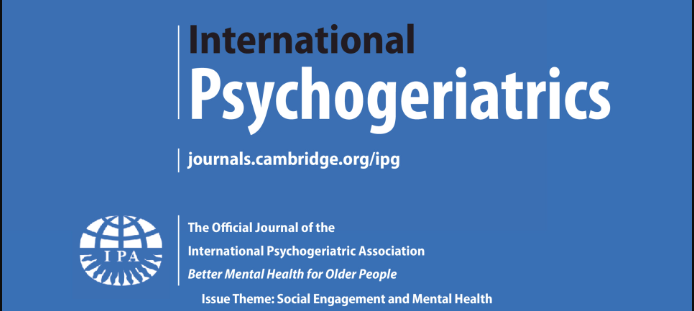P159: Low Cognitive Reserve as a Risk Factor for Delirium in Elderly: A Case-Control Study
IF 4.6
2区 医学
Q1 GERIATRICS & GERONTOLOGY
引用次数: 0
Abstract
Objective:Cognitive Reserve (CR) developed from observation that several individuals show fewer cognitive impairment compared to others with the same brain injuries or neuropathology. Cognitive reserve is a potentially modifiable characteristic. Most of studies on cognitive reserve were conducted on chronic progressive diseases such as dementia. This study aims to define the role of cognitive reserve in geriatric delirium cases.Methods:This case-control study was conducted in the acute geriatric inpatient of Cipto Mangunkusumo Hospital, Jakarta, Indonesia on June to September 2019 that consisted of 33 subjects with delirium and 33 controls. The measurement of cognitive reserve was done using the Indonesian adaptation of Cognitive Reserve Index questionnaire (CRIq) with 3 subscales, i.e. Education, Work Activity and Leisure Time.Results:We found that the CRIq scores of delirium patients were lower compared to the non-delirium controls both on total and each subscores, with a statistically significant mean difference (p<0,01). Patients with low-medium cognitive reserve also more likely to develop delirium compared to those with medium-high cognitive reserve (OR 9; 95% CI 2.86 to 28.22).Conclusion:Low cognitive reserve may serve as a risk factor for delirium in the elderly. The measure of CRI in the geriatric inpatients unit can be used to determine those at risk of developing delirium. Further research are warranted to elaborate potentially modifiable variables of cognitive reserve to minimize the risk of delirium.P159:低认知储备是老年人谵妄的风险因素:病例对照研究
目的:认知储备(Cognitive Reserve,CR)是在观察到一些人与其他具有相同脑损伤或神经病理的人相比,认知障碍较少的情况下发展起来的。认知储备是一种潜在的可改变特征。大多数关于认知储备的研究都是针对痴呆症等慢性进展性疾病的。本研究旨在确定认知储备在老年谵妄病例中的作用。方法:本病例对照研究于2019年6月至9月在印度尼西亚雅加达Cipto Mangunkusumo医院的急性老年病住院患者中进行,包括33名谵妄患者和33名对照组患者。结果:我们发现,与非谵妄对照组相比,谵妄患者的CRIq总分和各分项得分均较低,平均差异有统计学意义(p<0,01)。中低认知储备的患者也比中高认知储备的患者更容易出现谵妄(OR 9; 95% CI 2.86 to 28.22)。在老年住院病人病房中测量CRI可用于确定哪些人有发生谵妄的风险。我们有必要开展进一步研究,探讨认知储备的潜在可调节变量,以最大限度地降低谵妄风险。
本文章由计算机程序翻译,如有差异,请以英文原文为准。
求助全文
约1分钟内获得全文
求助全文
来源期刊

International psychogeriatrics
医学-精神病学
CiteScore
9.10
自引率
8.60%
发文量
217
审稿时长
3-6 weeks
期刊介绍:
A highly respected, multidisciplinary journal, International Psychogeriatrics publishes high quality original research papers in the field of psychogeriatrics. The journal aims to be the leading peer reviewed journal dealing with all aspects of the mental health of older people throughout the world. Circulated to over 1,000 members of the International Psychogeriatric Association, International Psychogeriatrics also features important editorials, provocative debates, literature reviews, book reviews and letters to the editor.
 求助内容:
求助内容: 应助结果提醒方式:
应助结果提醒方式:


